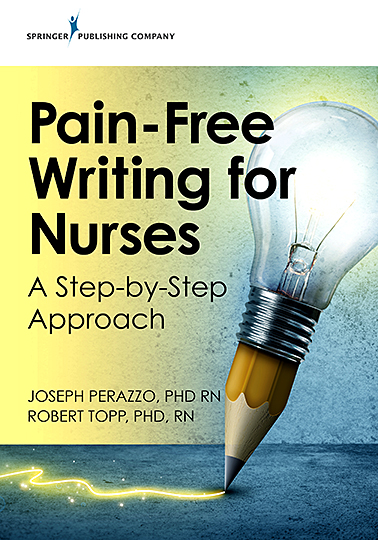At one of Dr. Robert Topp’s previous institutions, nearly one in five patients scheduled for a cardiac catherization canceled the appointment on the day of the procedure. Frequently, it was because the patient hadn’t completed the necessary blood work or hadn’t followed the proper preparation guidelines.
Administrators were prepared to cut staffing by 20% to offset the lower patient volume.
 Instead, a group of clinical nursing staff developed a plan to call patients the night before to go through a checklist of everything that needed done and be at the ready to provide pre-written orders for any last-minute requirements.
Instead, a group of clinical nursing staff developed a plan to call patients the night before to go through a checklist of everything that needed done and be at the ready to provide pre-written orders for any last-minute requirements.
Topp, now a professor and associate dean for research and scholarship at The University of Toledo College of Nursing, said that solution cut the cancelation rate from approximately 20% to 3%, saving the center almost $500,000 a year.
“It really generated a lot of positive public relations ink for the nurses in the department. Their problem was, this plan to manage patients was never published,” he said. “This great thing the nurses developed to save money and help patients was only communicated within the institution, when it could have had a wider impact.”
Topp wants to encourage UToledo’s nursing students, clinical staff and faculty to think about how they might be able to impact healthcare delivery through scholarly writing.
He recently collaborated with a colleague from the University of Cincinnati on a new textbook called “Pain-Free Writing for Nurses: A Step-by-Step Approach.”
“Nurses have a wealth of knowledge. This book explains how to get that knowledge in a place that other people can use it,” Topp said.Available in both printed and online form from the Springer Publishing Co., the book provides a start-to-finish guide for scholarly writing and illustrative anecdotes like the one from the cath center.
The book also dispels myths about writing, including the idea that you need a doctoral degree to be published.
“Students and clinical nurses are first authors on many manuscripts I co-author because they make a significant contribution to the work. Co-authoring with students helps them to understand that their work can have a broader impact on improving healthcare,” Topp said. “As students consider enrolling in the College of Nursing, one of the advantages here at UToledo is that they have the opportunity to work with faculty to publish a manuscript, which is a tangible deliverable of their academic experience.”
Topp said scholarly writing for nurses isn’t different from what microbiologists or chemists produce, it’s just that many nurses aren’t introduced to the concept. By providing the guidelines for that process, students and clinical nurses are more prepared to make meaningful contributions to healthcare as future nursing leaders.
“Nursing is a clinical science. The interventions nurses develop can have an immediate impact on healthcare delivery and the cost of care,” he said. “That’s one of the advantages for students and clinical nurses to learn how to write scholarly articles.”